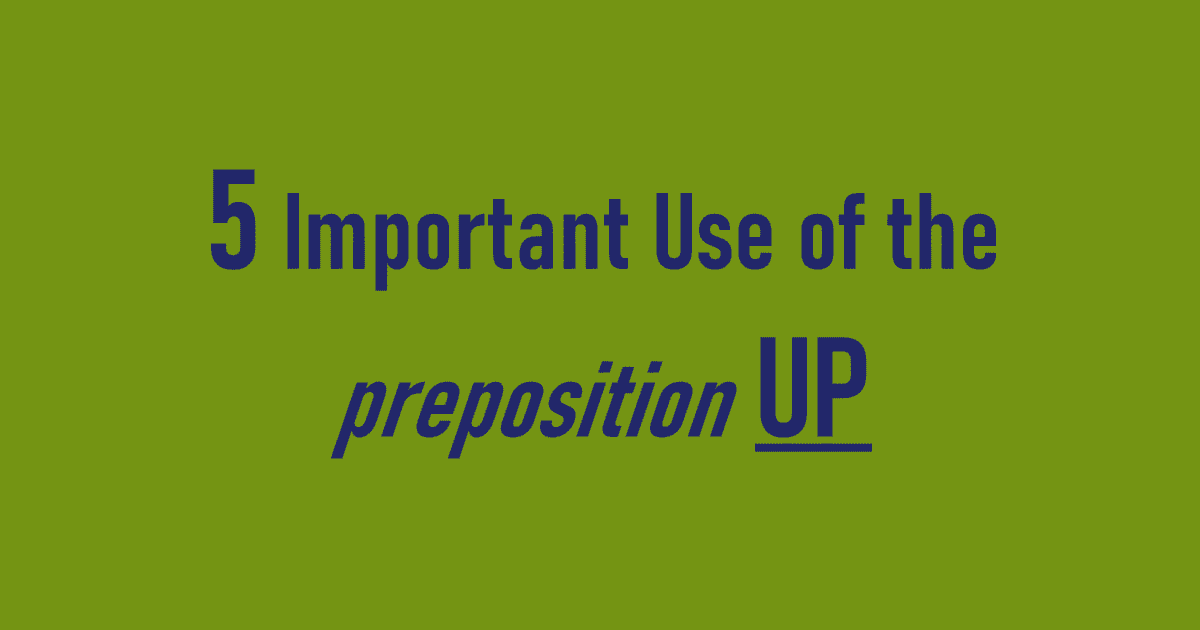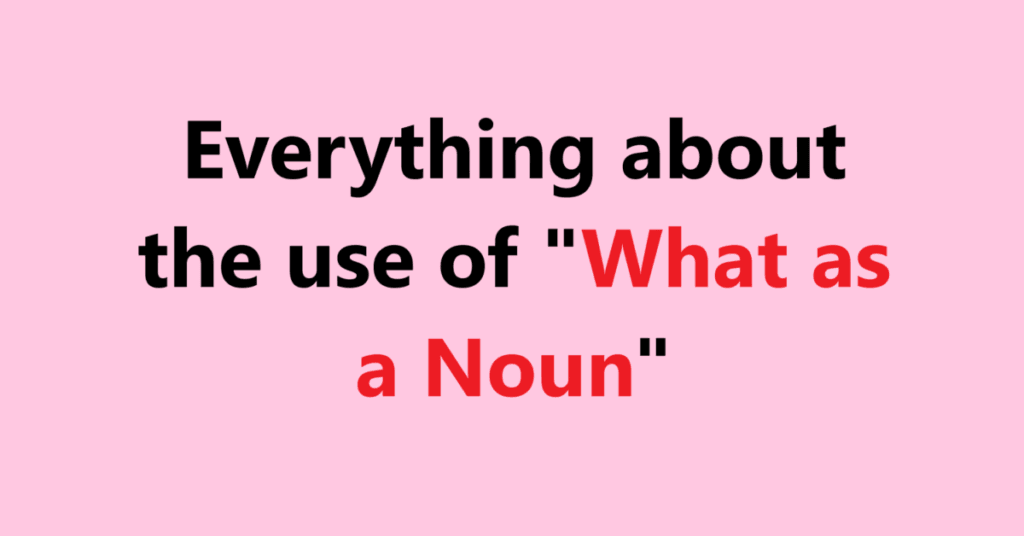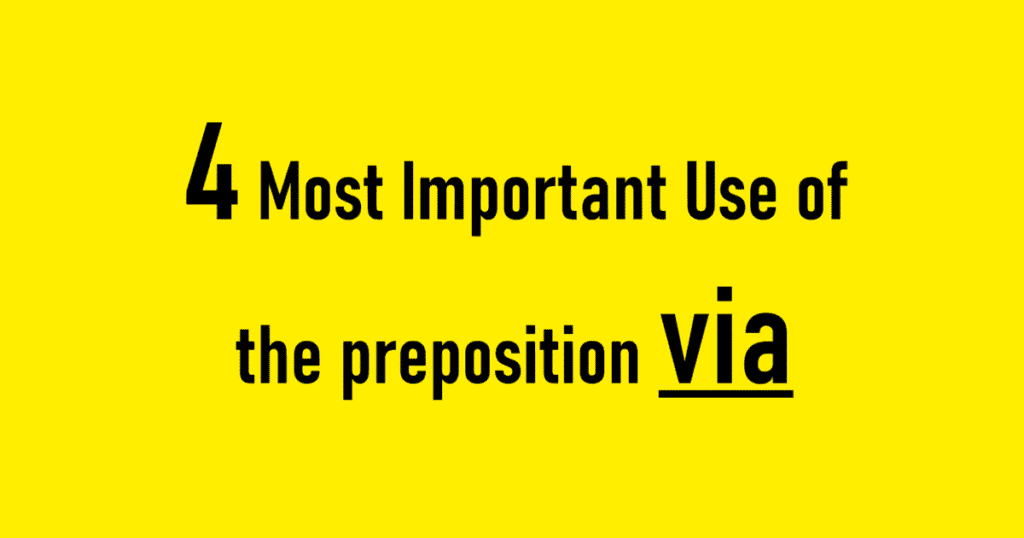Use of the preposition up. The seemingly simple preposition “up” is a ubiquitous yet surprisingly complex part of the English language. We use it constantly, often without even thinking about its diverse meanings and applications. From indicating physical direction to describing abstract concepts, “up” boasts a versatility that can sometimes lead to confusion. This comprehensive guide aims to unravel the intricacies of “up,” providing a detailed exploration of its various uses and helping you master its nuances.
Use of the preposition up
I. “Up” as a Preposition of Direction:
This is perhaps the most fundamental and easily understood use of “up.” It indicates movement or position in a direction that is higher than the point of origin or reference.
- Literal Upward Movement: This is the most common association with “up.” It describes physical movement in a vertical direction.
- Examples:
- “She climbed up the stairs.” (Movement from a lower to a higher floor)
- “The balloon floated up into the sky.” (Movement from the ground towards the heavens)
- “We hiked up the mountain.” (Ascending the slope of the mountain)
- Examples:
- Movement Towards a Higher Point in a Structure: Even if the movement isn’t strictly vertical, “up” can be used to indicate movement towards a higher part of a defined structure.
- Examples:
- “He went up to the roof.” (Movement towards the highest part of the building)
- “She moved up the ladder.” (Climbing the rungs of the ladder)
- “The cat jumped up onto the table.” (Movement onto the surface of the table)
- Examples:
- Movement Northwards on a Map: Interestingly, “up” can also refer to a northerly direction, particularly in older geographical conventions. This usage stems from the historical placement of north at the top of maps.
- Examples:
- “They travelled up the coast.” (Travelling north along the coastline)
- “She’s gone up north for the summer.” (Travelling to a region north of the speaker)
- Examples:
II. “Up” as an Adverb:
Beyond its prepositional function, “up” frequently acts as an adverb, modifying verbs and adding extra meaning to actions.
- Indicating Completion or Totality: In this sense, “up” often signifies that something has been finished, used entirely, or consumed.
- Examples:
- “Eat up your vegetables!” (Eat all of your vegetables)
- “He drank up the whole bottle of juice.” (He finished the entire bottle)
- “They used up all the paper.” (They exhausted the entire supply of paper)
- Examples:
- Indicating Preparation or Making Ready: “Up” can also convey the idea of preparation, assembly, or construction.
- Examples:
- “Set up the tent.” (Assemble the tent)
- “She tied up her hair.” (Arranged her hair into a ponytail or bun)
- “They dressed up for the party.” (Put on formal or special attire)
- Examples:
- Indicating Increased Activity or Intensity: “Up” can amplify the intensity or pace of an action.
- Examples:
- “Speed up!” (Increase your speed)
- “Turn up the volume.” (Increase the loudness)
- “She worked up a sweat.” (She exercised vigorously and started sweating)
- Examples:
- Indicating Emergence or Appearance: “Up” can denote the action of something appearing, emerging, or becoming visible.
- Examples:
- “The sun came up.” (The sun rose above the horizon)
- “He suddenly turned up at the party.” (He unexpectedly appeared at the party)
- “Her name cropped up in the conversation.” (Her name was mentioned)
- Examples:
III. “Up” in Phrasal Verbs:
One of the most challenging aspects of mastering “up” is its prolific use in phrasal verbs. These combinations of a verb and “up” (and sometimes other particles) often have meanings that are quite different from the literal meanings of the individual words. Understanding phrasal verbs requires memorization and contextual awareness. Here are a few common examples, categorized for clarity:
- Creation and Invention:
- Make up: To invent or fabricate (a story, excuse, etc.). Example: “He made up a story about being stuck in traffic.”
- Come up with: To devise or create something new. Example: “She came up with a brilliant idea for a new product.”
- Cleaning and Tidying:
- Clean up: To make something neat and tidy. Example: “Please clean up your room.”
- Tidy up: Similar to clean up, but often implying a less thorough cleaning. Example: “I’ll tidy up before the guests arrive.”
- Dealing with Emotions:
- Cheer up: To become happier or to make someone else happier. Example: “Cheer up, things will get better.”
- Wise up: To become aware of something, often something negative. Example: “He needs to wise up and realize she’s using him.”
- Growth and Increase:
- Grow up: To mature and become an adult. Example: “He needs to grow up and take responsibility.”
- Add up: To make sense; to be logical. Example: “His story doesn’t add up.” Also, to calculate a sum. Example: “Add up the total cost.”
- Termination and Conclusion:
- End up: To reach a particular state or place after a series of events. Example: “We ended up getting lost.”
- Wrap up: To finish something. Example: “Let’s wrap up the meeting.”
- Others:
- Look up: To find information in a reference book or online. Example: “Look up the definition of the word.”
- Bring up: To mention a topic. Example: “Don’t bring up the argument again.”
- Turn up: To appear, especially unexpectedly. Example: “He turned up late for the meeting.” Also, to increase (volume, heat, etc.). Example: “Turn up the music.”
- Give up: To stop trying to do something. Example: “Don’t give up on your dreams.”
- Use up: To consume entirely. Example: “We used up all the milk.”
- Wake up: To stop sleeping. Example: “I wake up early every morning.”
- Catch up: To reach the same level as others. Example: “I need to catch up on my work.”
IV. “Up” in Idiomatic Expressions:
Beyond phrasal verbs, “up” features in many common idioms that carry figurative meanings. Recognizing these idioms requires familiarity with the English language and its cultural context.
- “Up to someone”: Meaning that someone is responsible for something or has the ability to do something. Example: “It’s up to you to decide.”
- “Up in the air”: Meaning uncertain or unresolved. Example: “Our travel plans are still up in the air.”
- “Up to date”: Meaning current or modern. Example: “Make sure your software is up to date.”
- “Up for grabs”: Meaning available to anyone. Example: “The last tickets are up for grabs.”
- “Ups and downs”: Meaning good times and bad times. Example: “Life has its ups and downs.”
- “All mixed up”: Meaning confused or disoriented. Example: “I’m all mixed up after that long flight.”
- “Time’s up”: Meaning the allotted time has expired. Example: “Time’s up! Please hand in your papers.”
V. Common Mistakes and Considerations:
- Overusing “Up”: While “up” is versatile, avoid using it unnecessarily. Sometimes, the verb is perfectly clear without it. For example, instead of “climb up the tree,” simply “climb the tree” might suffice.
- Confusing “Up” with Other Prepositions: Pay attention to the nuances of each preposition. “Over,” “above,” and “on” might sometimes seem interchangeable with “up,” but they carry distinct meanings. Consider:
- “He jumped over the fence” (implies crossing something).
- “The bird flew above the clouds” (indicates a position higher than something else).
- “He climbed on the roof” (indicates movement onto a surface).
- Context is Key: Understanding the context of a sentence is crucial for deciphering the meaning of “up.” Pay attention to the surrounding words and the overall situation.
Conclusion:
Mastering the use of “up” requires a conscious effort to understand its multiple roles and subtle variations. By studying its functions as a preposition and adverb, familiarizing yourself with common phrasal verbs and idioms, and paying attention to context, you can confidently navigate the complexities of this essential English word. Remember that practice and exposure to the language are key to developing fluency and intuition in using “up” correctly and effectively. Keep exploring and experimenting with “up,” and you’ll undoubtedly find yourself using it with greater precision and confidence in your everyday communication.
Read Also,
- Learn all prepositions
- Use of the preposition above
- Use of the preposition about
- What is Religion
- News in Hindi
- Human vs AI
- Very Important Word Lists
>>> Sir Sahil


